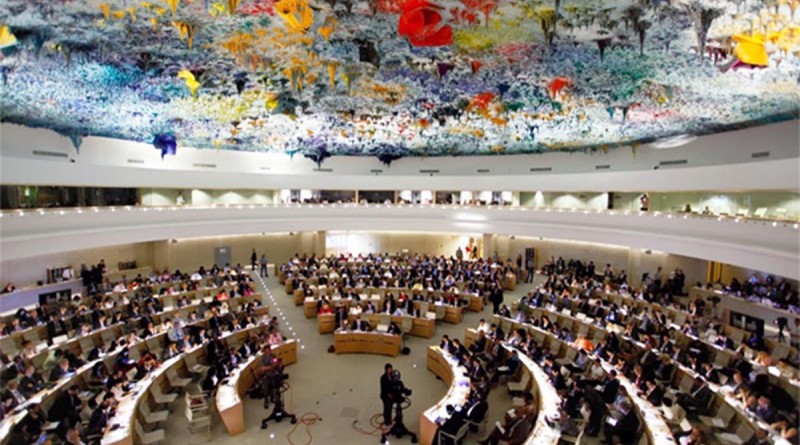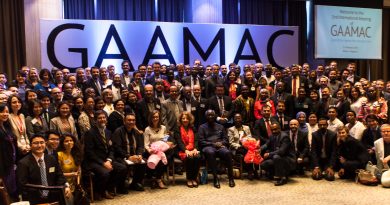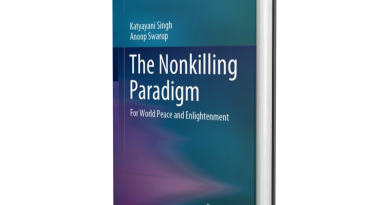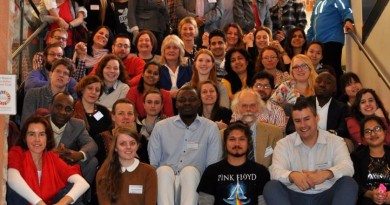Highly busy session at Human Rights Council’s 58th session
Is the Right to Life Progressing?
Serving life and the good life for all is the highest, or one of the highest purposes one can give to itself, as unto others. Once life is assured and doing well, all the rest may follow. Including joy, effective life sustaining work, big and small, happy progress and celebration. Your Center for Global Nonkilling (CGNK) celebrates this year ten years of presence at the United Nations.
The Human Rights Council of the United Nations is your Council, the Council of the people, or at least the Council dedicated to the rights of the people. By far, it is not yet a World Parliament in which each and everyone can express itself through direct democracy. Note that calls for establishing such an institution have started; we support and follow them closely.
At its 58th Session this late winter, the Council adopted 32 resolutions. To name only a few: the beginning of discussions for a treaty for older persons, a new text on neurotechnology and human rights, and a demand to the General Assembly for an accountability mechanism for the Palestinian Occupied Territories.
Your delegate at UNOG (United Nations Office in Geneva), Christophe Barbey, delivered or helped deliver 17 oral statements: 5 on thematic issues and 12 for country situations, all of them to improve the right to life, as a whole and regarding specifics aspects of it.
On the death penalty (see our previous report), we advocated for a Nonkilling Judiciary. On genocide, we recalled that warning signs go both ways: to prevent and address growing risks of genocide when they appear, but also at large to always reinforce central ethical values such as life and peace, in order to make genocide less likely. On item 3, dedicated to all Human Rights, we started a new series on “Human Rights Theory” by – surprisingly maybe – the right to property highlighting two aspects of it. First, the fact that we all “own” our human rights and secondly, the fact that this right is horizontal: the right to property only exists, in its universality, if others also have it, and that is if we all have basic standards of living met, and ideally well met.
The philosophy of the enlightenment used to say: “the greatest good for the greatest number”. With the Human Rights philosophy and practices, we all stand differently: “enough good for everyone”. And this is a human-rights based economy.
On Item 5, Human rights mechanisms, we highlighted various aspects of the links between peace and human rights, recalling a list of peacemaking tools and the need for the public to be able to pay for peace, for the Peacebuilding Fund of the United Nations, as we are able to pay directly for UNICEF, for the High Commissioner on Human Rights’ office and for other UN entities.
On Country situations.
For Syria, we called for a comprehensive peace plan. For North Korea, we recalled the peace conference yet to happen since the 1955 armistice agreement and the needed for peaceful settlements of disputes and violence prevention programs within the country as well. For Afghanistan – thank you Elina Viitasaari, our gender focal point, for making and delivering this statement– we called for more robust action to end gender apartheid and recalled that men must work as well and as much for gender equality. For Haiti, we demanded how the UN intends to enhance democracy there. Responses are waited for…
Using the Universal Periodic Review (all members States of the UN pass in front of the Council every five years for a peer to peer review of their human rights situation), we asked Bhutan, Equatorial Guinea and Qatar to ratify the Genocide Convention. For Brunei Darussalam we also asked for the decriminalization of suicides. For Portugal, which works tirelessly on mental health and human rights issues, we called for more human rights education to alleviate mental health situations and for more work on mental well-being in prisons. Dominica needs to conclude its process of abolish the death penalty, started long ago by stopping executions. Finally, we congratulated Costa Rica for its peace and life policies at large and wondered if it could open up more its adoption policies, beyond prevention, to use if needed adoption to lower the abortion rate.
All our declarations are all available on the extranet of the Human Rights Council and on UN WebTV and will be available on CGNK’s website in due time.
Your representative in Geneva regularly demands at all valid occasions to enhance the quality and safety of life for all. This work, with your support, will continue. We do need help to do it. We also appreciate your tips for this modest work for life on our United Nations related tipeee page or on our CGNK help page.




